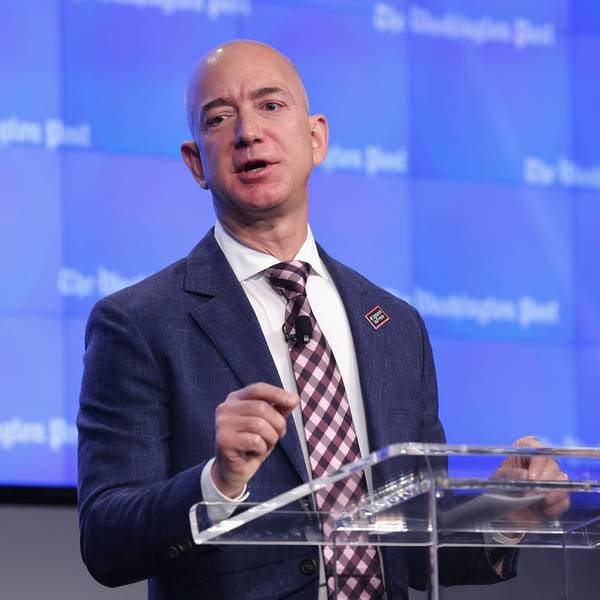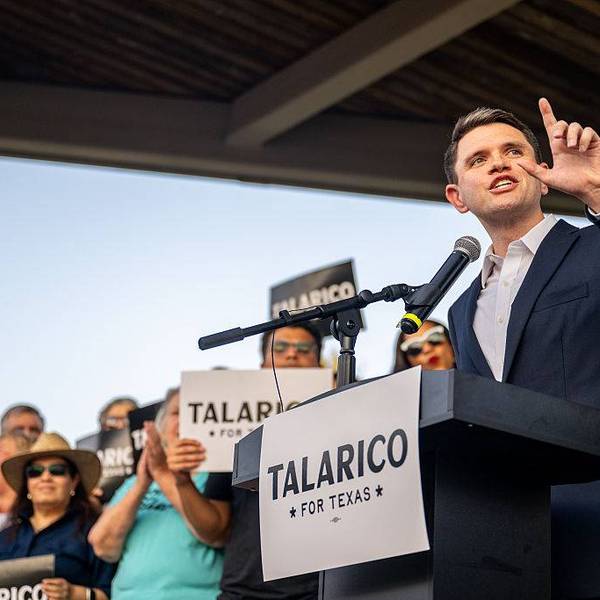Will Mars save humanity? Or will our savior be billionaire Elon Musk?
Musk, the CEO of SpaceX and Tesla, humbly believes we don't have to choose. Mars will save us, he promises, and Musk himself will engineer this Mars miracle.
In 2019, Musk claims, SpaceX will start making short trips to Mars. By the early 2020s, his company will begin colonizing the Red Planet with a human population.
Why this feverish haste to set foot on interplanetary terra firma?
Musk sees a new "dark age" descending on our precious Earth. Another world war -- or some environmental collapse -- appears likely to threaten us with extinction, he fears.
Mars strikes Musk as our ideal refuge, the place where humankind will heroically regroup and eventually "bring human civilization back" to our mother planet.
And we can even have some fun in the process. The Mars colony that Musk envisions will have everything from iron foundries to "pizza joints and nightclubs."
"Mars," he quips, "should really have great bars."
Reporters have become accustomed to this sort of visionary whimsy from Musk. The billionaire, In These Times says, has crafted his image as "a quirky and slightly off-kilter playboy genius inventor capable of conquering everything from outer space to the climate crisis with the sheer force of his imagination."
This carefully cultivated image has proven extraordinarily lucrative.
Investors now value Tesla, his 15-year-old car company, at around $60 billion -- not bad, note Wall Street watchdogs Pam and Russ Martens, for a firm that "lost almost $2 billion last year and has never delivered an annual profit to shareholders."
But Musk remains supremely confident that his enterprise on Mars will take root and prosper. He's betting a good chunk of his fortune on that.
Or rather, he's betting a good chunk of taxpayers' fortune.
Musk owes his billions, as commentator Kate Aronoff points out, to the billions in direct taxpayer subsidies his companies have received over the years -- and the billions more in taxpayer-funded research into rocket technology and other high-tech fields of knowledge.
So Musk is essentially investing our billions in his own pet projects, everything from the Mars gambit to establishing a mass-market niche for high-tech flamethrowers.
None of this is going to rescue humanity anytime soon.
Indeed, if Musk really wanted to ensure humankind a sustainable future, he wouldn't be plotting escapes to Mars or marketing flamethrowers to the masses. He'd be challenging the global economic status quo that's left him phenomenally rich and our world phenomenally unequal.
This inequality may well pose the greatest threat to our well-being as a species. Stark economic divides invite armed confrontations.
Inequality and conflict, Norwegian scholars observed last year in a major report for the United Nations and the World Bank, remain "inextricably linked." They found that "inequality influences the outbreak and dynamics of violent conflict," going all the way back to the ancient Greeks.
In more recent years, researchers have made great strides in understanding the actual pathways in unequal societies that turn conflict violent. But huge gaps in the research are still frustrating our understanding.
What we do know: Hawking high-tech flamethrowers is never going to save humanity. Neither will bar-hopping on Mars.




